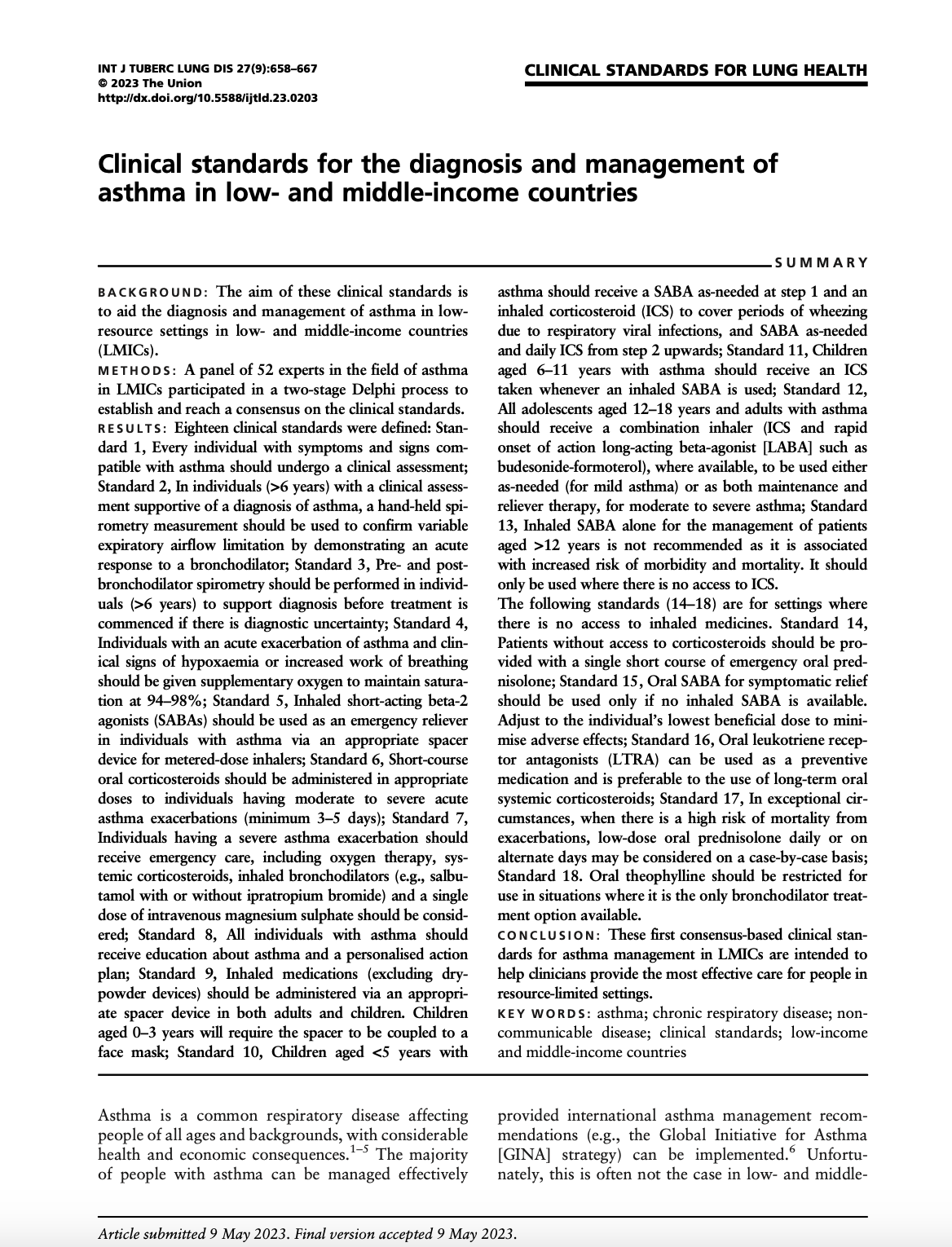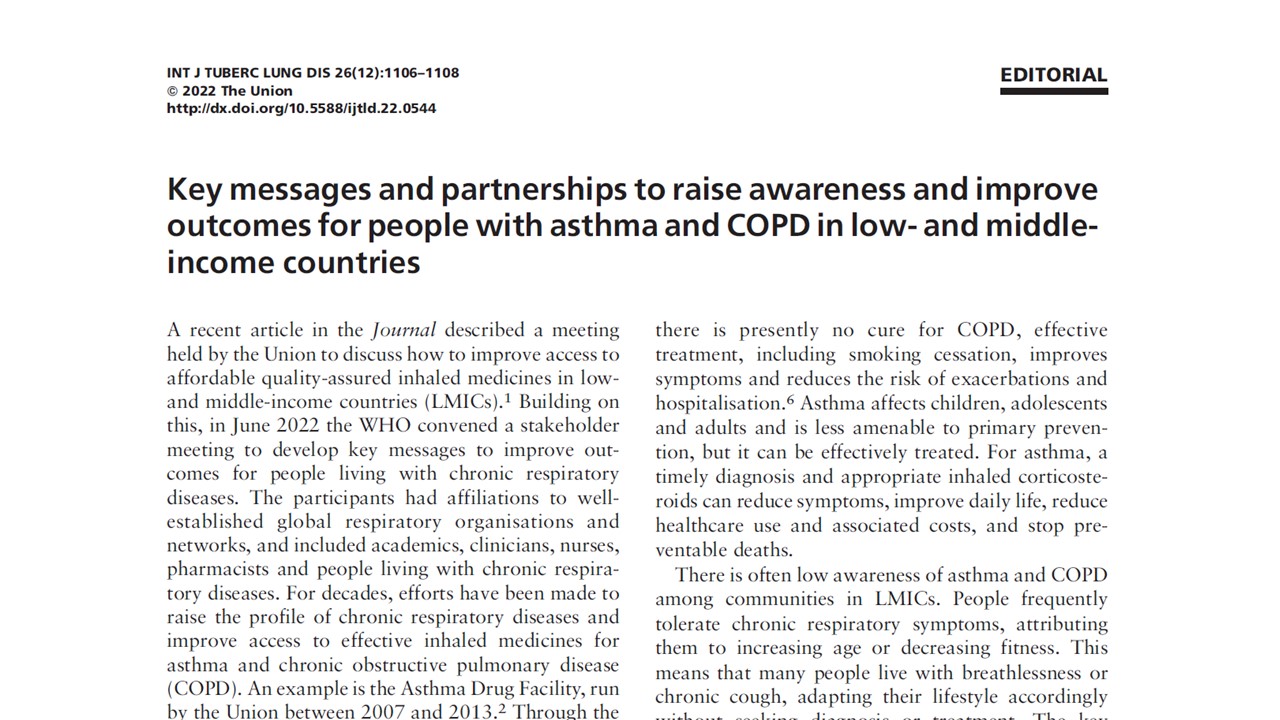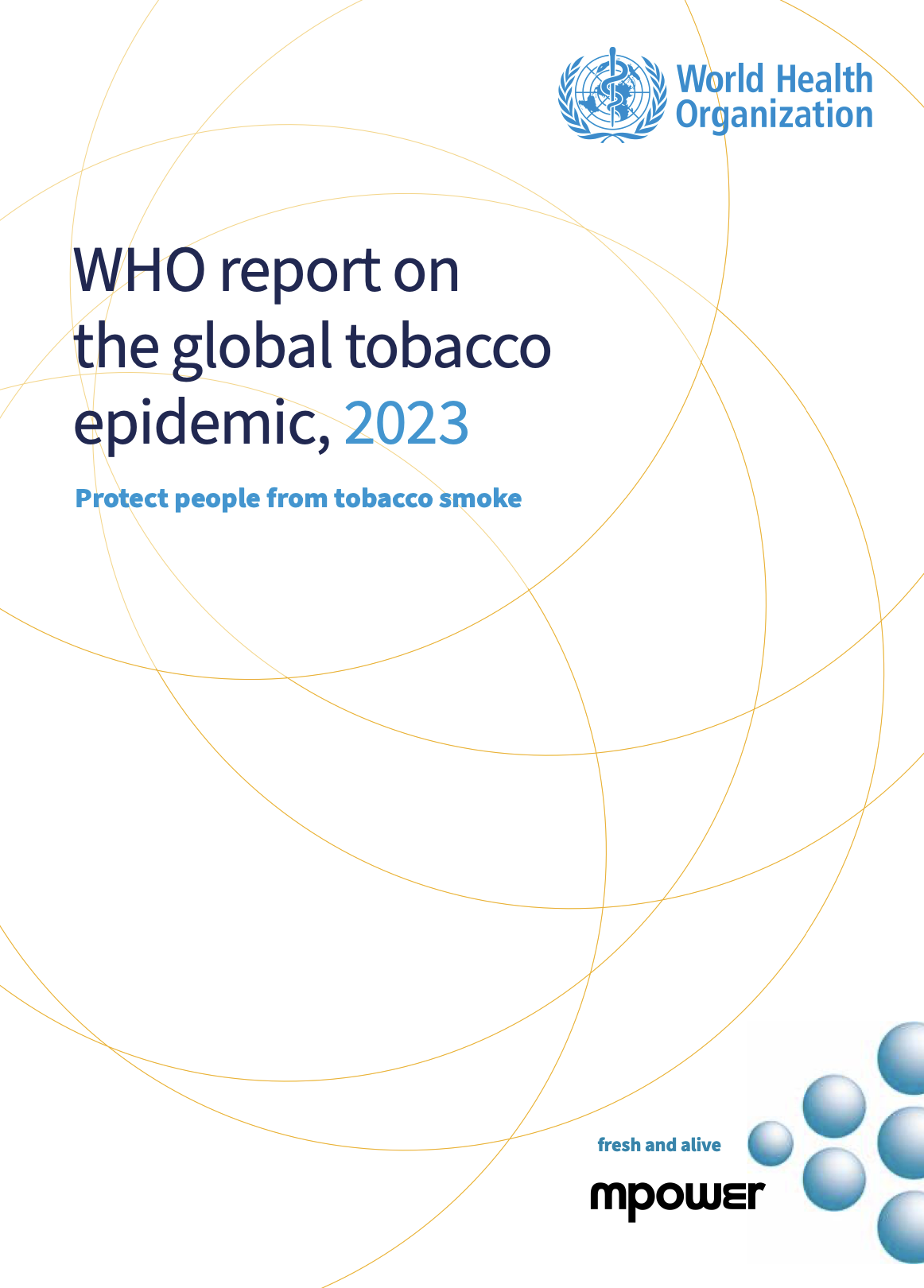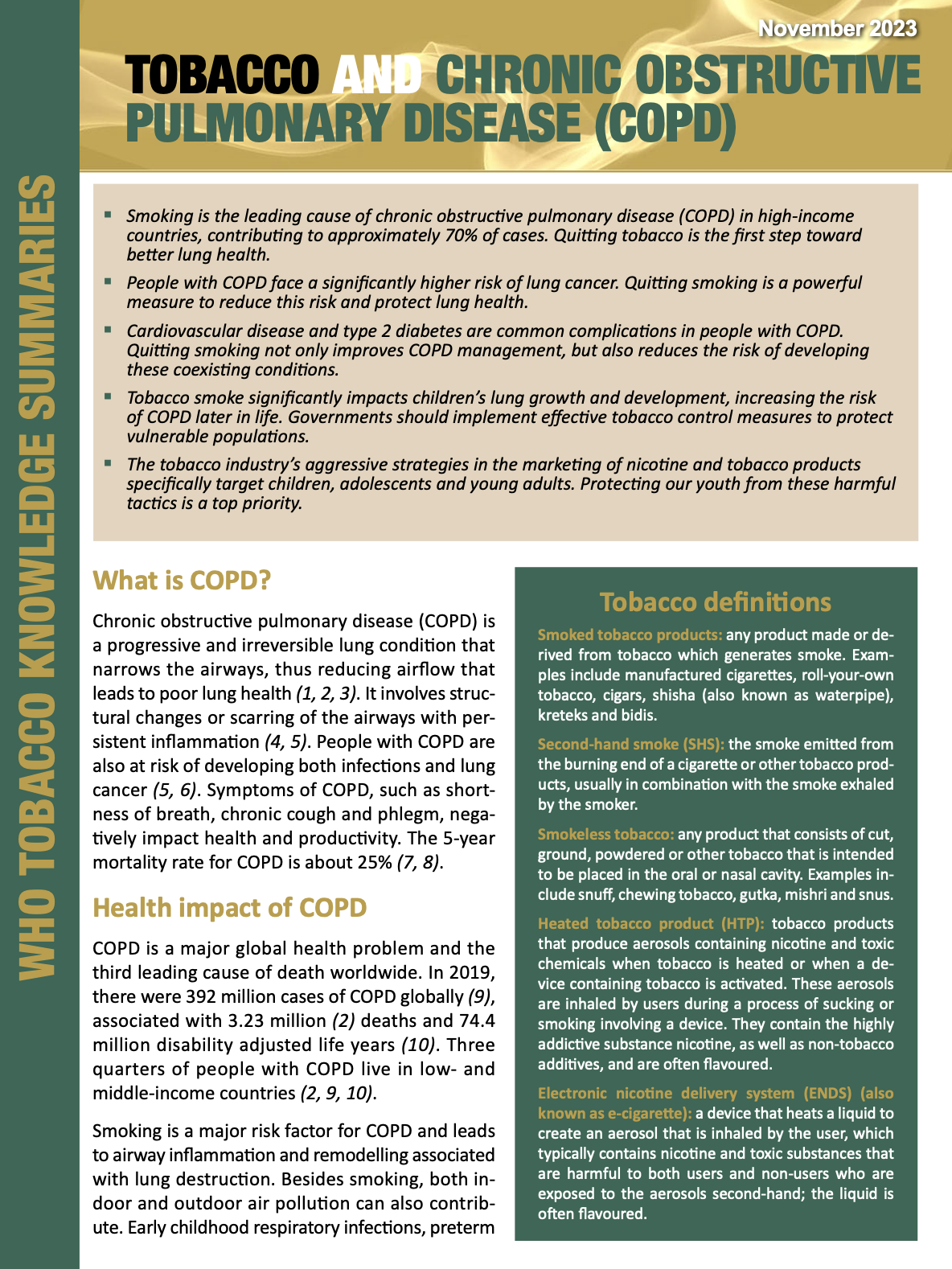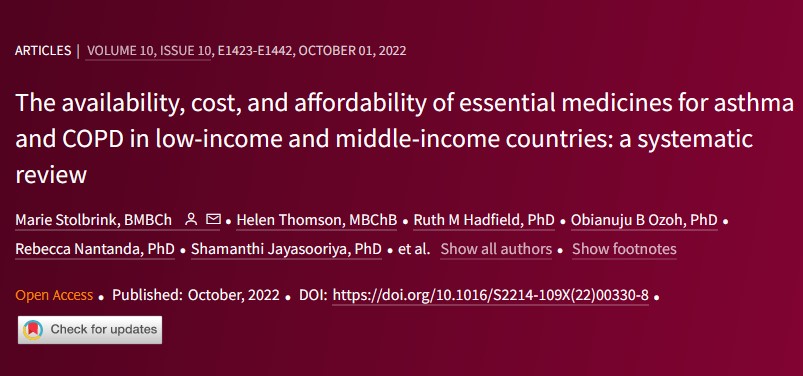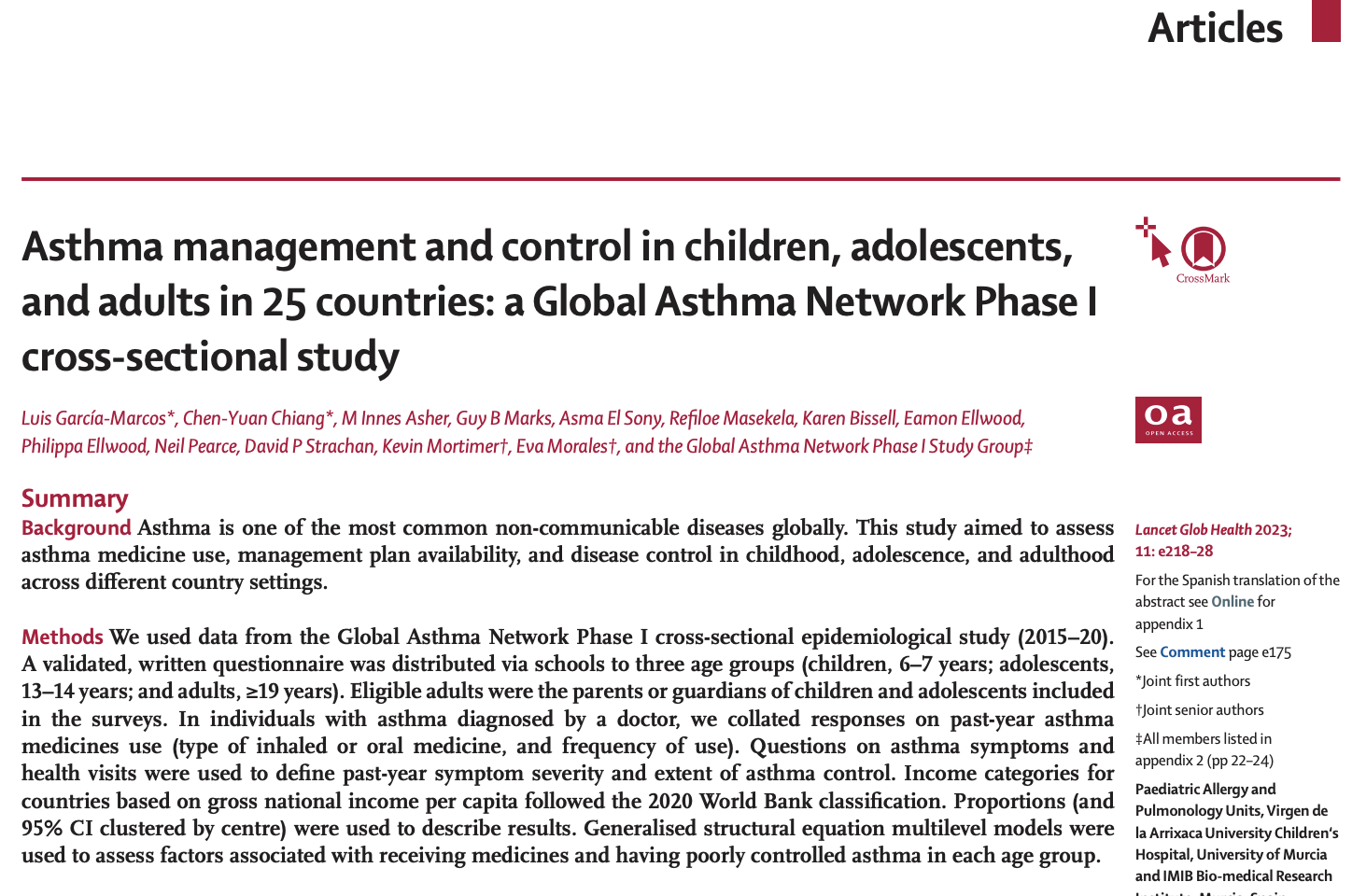Key facts
- Asthma is a major noncommunicable disease (NCD), affecting both children and adults, and is the most common chronic disease among children.
- Inflammation and narrowing of the small airways in the lungs cause asthma symptoms, which can be any combination of cough, wheeze, shortness of breath and chest tightness.
- Asthma affected an estimated 262 million people in 2019 (1) and caused 455 000 deaths.
- Inhaled medication can control asthma symptoms and allow people with asthma to lead a normal, active life.
- Avoiding asthma triggers can also help to reduce asthma symptoms.
- Most asthma-related deaths occur in low- and lower-middle-income countries, where under-diagnosis and under-treatment is a challenge.
- WHO is committed to improving the diagnosis, treatment and monitoring of asthma to reduce the global burden of NCDs and make progress towards universal health coverage.
Overview
Asthma is a chronic lung disease affecting people of all ages. It is caused by inflammation and muscle tightening around the airways, which makes it harder to breathe.
Symptoms can include coughing, wheezing, shortness of breath and chest tightness. These symptoms can be mild or severe and can come and go over time.
Although asthma can be a serious condition, it can be managed with the right treatment. People with symptoms of asthma should speak to a health professional.
Information presented on this page has been replicated from the linked WHO fact sheet. Please always refer to the original source on who.int for the latest version. Last update: March 2024


